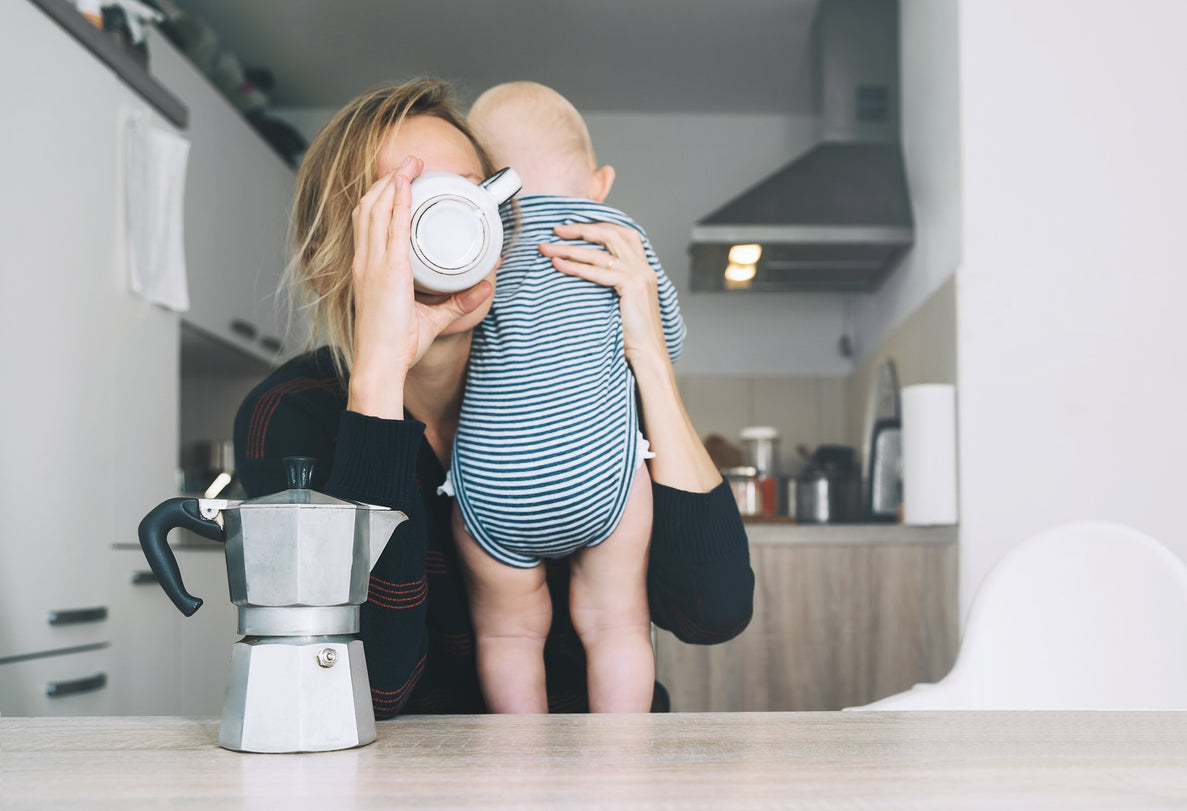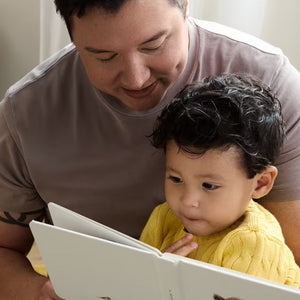People will ask you all the time, “How’s the baby sleeping?” Wouldn’t it be great if they asked about your sleep? If you’ve taken one of the Taking Cara Babies classes, you have the tools you need for baby sleep, but that doesn’t necessarily mean that you’re snoozing the second you lay your head down.
We know how important sleep is. It aids in the function of just about...everything. As a licensed psychologist, I talk about sleep with my patients regularly. As a matter of fact, sleep can be a prescribed treatment for women experiencing perinatal mood and anxiety disorders. Lack of sleep is commonly seen as an exacerbating factor for postpartum moms (and dads). In a recent study(1), the relationship between quality of sleep and symptoms of depression and anxiety in the perinatal period were investigated. This study revealed that poor sleep quality was significantly related to increased symptoms of depression and anxiety.
If you’re anything like I was, I struggled to sleep after getting my son to sleep. I would lay in bed and toss and turn. I heard phantom cries. I thought through everything—things that were irrelevant or far in the distant future. It made me feel anxious. I’m not certain if a bit of anxiety resulted in me having a hard time sleeping or my inability to get to sleep was causing anxiety.
Since becoming a mom, my sleep has changed. I became hyper-aware of all sounds, no matter how light. I did a few things right away that were helpful. I switched sides of the bed with my husband. At this point, our son was still in our room, and I knew that the closer in proximity I was, the more I heard (or thought I heard). As my son grew older and was in his own room, I placed the monitor on his (my husband’s) side of the bed.
I also started to implement the same sleep hygiene tips that I routinely tell patients to practice.
Here is what I suggest:
-
Create a sleep schedule. That simply means you should go to bed and wake up at about the same time daily.
-
Only sleep when you are sleepy. If you try to fall asleep for 20 minutes and notice that you are tossing and turning, it’s time to get out of bed and do something different for a bit. Just be sure it’s non-stimulating—so no television, cell phone, or bright lights.
-
Avoid the use of caffeine, nicotine, and alcohol at least 4 hours before bedtime. Even if they don’t keep you from falling asleep, they will interfere with your quality of sleep.
-
Your bed should only be used for sleeping (or sex). If you use your bed for other activities, you’ll be accustomed to doing work or snacking in bed; this may confuse your body and make sleep difficult.
-
Try to avoid taking naps. (Exception: If your baby is struggling at night still, you may need to sneak in a nap.)
-
Create sleep rituals. Do the same calming things for 15 minutes before bed each night. Try praying, stretching, meditating, reading, or doing other relaxing activities.
-
Take a hot bath 1-2 hours before bed. Not only does the warm water promote drowsiness, but also when you get out, your core body temperature will drop slightly, which sends a signal to your brain that it's time for bed.
-
Be sure your bedroom is comfortable for sleep. I always suggest that the room be quiet, dark (use code Cara for 10% off), and an appropriate temperature. Many find that a temperature close to 68 degrees is most comfortable for adequate sleep, but choose a temperature that feels most comfortable for you.
If you need extra help getting yourself relaxed, I recommended downloading an app that includes sleep stories or meditations, such as: Calm, Headspace, Aura, or Slumber.
What if you’ve tried everything and you still can’t sleep? I think it’s time to dig a little deeper. Is there anything else that’s going on? Have you noticed changes in your mood, appetite, or thinking skills? Sometimes sleep disturbance can be a symptom of something else and treating the root cause will be very important. If you often find yourself thinking or saying, “I don’t feel like myself,” then it’s time to get connected with support. If you have a provider that you trust, reach out and discuss the changes you’re experiencing. If you don’t know of a provider, contact Postpartum Support International. You can also visit my website for more parent support resources.
With the help of the Taking Cara Babies classes and regular practice of sleep hygiene, you will sleep again. Know when to ask for help, and follow through! You are not alone, there is help available, and it will get better.
Dr. Ashurina Ream
Dr. Ashurina Ream, PMH-C is a licensed clinical psychologist with advanced training in maternal mental health. Her passion for maternal mental health arose after becoming a mother herself. In addition to this specialty, Dr. Ream has trained in various disciplines as it pertains to the field of psychology. She has worked with those struggling with body image, eating disorders, parenting, health-related mood impairment, cognitive functioning, and general mental health. Dr. Ream is a wife, mother, and friend. She enjoys being connected with others, finding the humor in life, and advocating for those who struggle to find their voice. Connect with her on Instagram and on her website.







